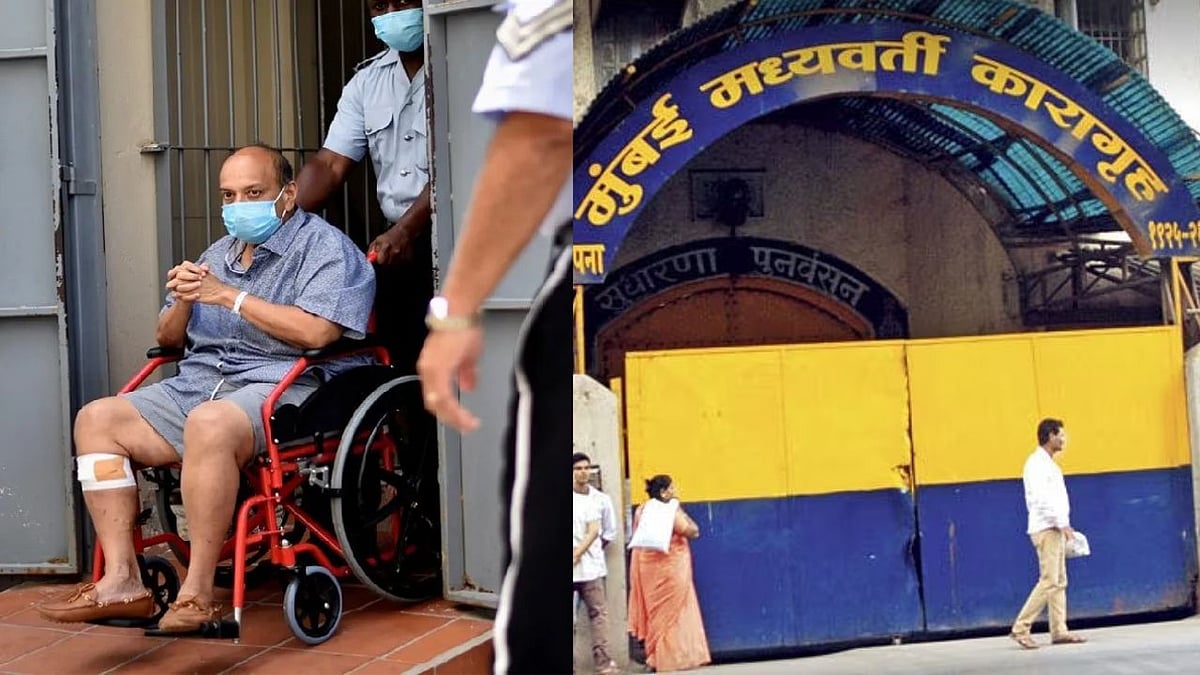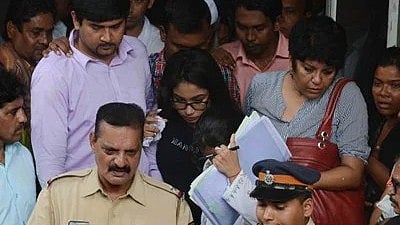The Ministry of Home Affairs (MHA) has given a sovereign assurance to Belgian authorities that fugitive diamantaire Mehul Choksi, wanted in connection with the multi-crore Punjab National Bank (PNB) fraud, will be provided with adequate living conditions at Mumbai’s Arthur Road Jail if extradited to India, central government sources said on Monday.
Accommodation Details at Arthur Road Jail
In a detailed communication to the Ministry of Justice, Government of the Kingdom of Belgium, the MHA said Choksi would be housed in Barrack No. 12 of Arthur Road Jail, which has a maximum capacity of six inmates but currently holds none.
The Government of India has assured Belgian authorities that Choksi, if extradited, will be held at Mumbai’s Arthur Road Jail under conditions that meet international human rights standards, including those of the European Court of Human Rights (ECHR).
In a letter of assurance sent by the MHA to Belgium’s Ministry of Justice and the Chambers of Indictment in Antwerp, the government said Choksi would be lodged in Barrack No. 12 of Arthur Road Jail, a high-security block reserved for economic offenders, which is currently unoccupied and has a maximum capacity of six inmates. Each detainee, the letter said, would have at least three square metres of personal space, in line with the standards set by the European Committee for the Prevention of Torture (CPT).
The MHA stressed that Choksi would not be placed in solitary confinement but would share a cell with another prisoner facing white-collar crime charges and a common language. Each cell in Barrack No. 12, measuring about 20 feet by 15 feet with a 15-foot ceiling, has an attached toilet and washroom, adequate lighting, ventilation through windows and fans, and mosquito-proofing. Prisoners are provided with a cotton mattress, pillow, blanket, and bedsheet, with a wooden or metal cot made available if recommended on medical grounds. The cells are cleaned daily, rubbish is cleared twice a day, and the municipal corporation fumigates the barrack every week.
Medical Care and Special Arrangements
The government’s assurance placed particular emphasis on medical care. Arthur Road Jail has six full-time medical officers, nursing and pharmacy staff, and a 20-bed hospital within the premises. For specialist care, inmates can be shifted to the Sir JJ Hospital, a multi-speciality teaching hospital located three kilometres away, with a prison ambulance and escort guards available round the clock. Choksi, the letter said, would also have the option of seeking treatment from private doctors or mental health experts of his choice, either inside prison or via video link, at his own expense. His existing medical records would be taken into account, and even his travel arrangements for extradition would be made keeping his health condition in mind.
Dietary and Nutritional Provisions
On diet and nutrition, the MHA assured that three meals would be served daily, each tested beforehand by jail authorities and doctors. Inmates are provided special diets on religious occasions such as Diwali, Eid, Holi and Christmas, and can also access court-approved home-cooked food. The Arthur Road canteen sells fruits, dry fruits, snacks, and toiletries, and every inmate is given a daily supply of bananas free of charge.
Exercise, Recreation, and Cultural Activities
The assurance also underlined access to exercise and recreation. Inmates of Barrack No. 12 have use of an open-air yard measuring 15 by 40 feet for several hours daily. During monsoons or inclement weather, exercise is allowed in the passageways inside the barrack. Prisoners are encouraged to practice yoga and meditation, play games such as chess and carrom, and borrow books from the jail library. Cultural programmes and live performances are regularly organised inside the jail, the letter added.
Security and Safety Measures
On security, the government said Barrack No. 12 is under 24x7 CCTV surveillance, with dedicated guards and officers deployed in shifts. Inmates are segregated according to age, type of crime and special needs, and violent or habitual offenders are housed separately. The letter asserted that there was “no question of overcrowding, violence or extortion” in Barrack No. 12.
Family and Legal Communication
Choksi would also be allowed regular communication with his family and lawyers. According to the assurance, he can meet blood relatives once a week for 20 minutes, speak to family members over the phone, and consult lawyers daily except on Sundays and public holidays. Newspapers in English and local languages and terrestrial television channels are also available to inmates.
Regular Oversight and Complaint Mechanisms
The MHA emphasised that prison conditions are regularly monitored by the Maharashtra prison administration, the National Human Rights Commission (NHRC), the State Human Rights Commission (SHRC), and judicial officers. Prisoners are free to lodge complaints regarding mistreatment or inadequate facilities with prison authorities, rights bodies, or courts, and remedial action is taken in cases found to be substantiated.

Binding Nature of Sovereign Assurance
Calling its commitment a “sovereign assurance”, the government underlined that the facilities promised to Choksi are binding on Indian authorities and cannot be overridden by any administrative or judicial decision.
Extradition Context
Choksi, wanted by the Central Bureau of Investigation in connection with the Punjab National Bank fraud case registered in 2018 under sections of the Indian Penal Code and the Prevention of Corruption Act, is currently facing extradition proceedings in Antwerp, Belgium. The latest assurance is intended to address concerns under Article 3 of the ECHR, which prohibits inhuman or degrading treatment of detainees.






